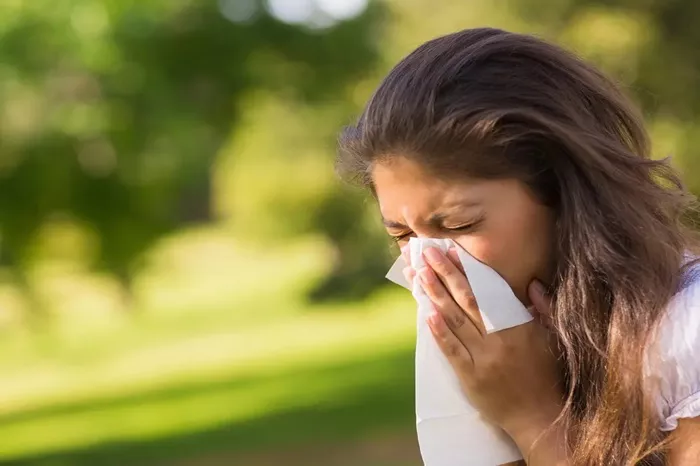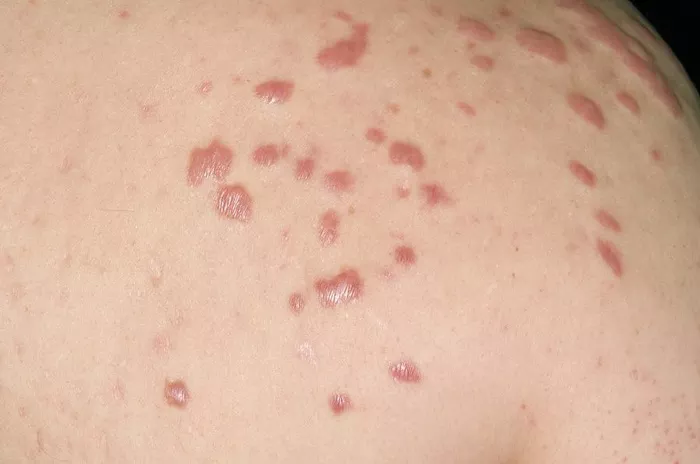Seasonal rhinitis, commonly known as hay fever or seasonal allergies, is a prevalent condition that affects many individuals worldwide. This comprehensive guide explores the causes, symptoms, diagnosis, treatment options, and preventive measures for seasonal rhinitis.
Understanding Seasonal Rhinitis
Definition
Seasonal rhinitis is an allergic reaction triggered by airborne allergens, typically pollen from trees, grasses, and weeds. It leads to inflammation of the nasal passages and often affects the eyes and throat as well.
Common Names
Hay Fever: Refers to allergies triggered specifically by pollen.
Seasonal Allergic Rhinitis: Describes allergic reactions that occur seasonally due to specific allergens.
Prevalence
Seasonal rhinitis is widespread, affecting people of all ages. It can occur during specific times of the year when allergen levels are higher, such as spring (tree pollen), summer (grass pollen), or fall (weed pollen).
Causes of Seasonal Rhinitis
The primary cause of seasonal rhinitis is exposure to airborne allergens:
Pollen: Pollen grains from trees, grasses, and weeds are the most common triggers.
Outdoor Mold Spores: Mold spores released into the air can also contribute to allergic reactions, especially in humid climates.
Airborne Particles: Other airborne particles, such as dust mites and pet dander, can exacerbate symptoms but are less commonly associated with seasonal rhinitis.
Symptoms of Seasonal Rhinitis
Nasal Symptoms
Sneezing: Frequent and uncontrollable sneezing.
Runny or Stuffy Nose: Nasal congestion with clear discharge.
Itchy Nose: Persistent itching inside the nose.
Eye Symptoms (Allergic Conjunctivitis)
Red, Itchy Eyes: Eyes may appear red and feel itchy or irritated.
Watery Eyes: Excessive tearing due to allergic reaction.
Swollen Eyelids: Swelling around the eyes, particularly in severe cases.
Throat Symptoms
Sore Throat: Irritation and discomfort in the throat.
Postnasal Drip: Mucus drips down the throat, causing coughing or throat clearing.
General Symptoms
Fatigue: Feeling tired or rundown due to disrupted sleep from nasal congestion or other symptoms.
Decreased Sense of Smell: Reduced ability to smell or taste due to nasal congestion.
Timing of Symptoms
Symptoms of seasonal rhinitis typically coincide with the peak pollen seasons:
Spring: Tree pollen allergies (March to May).
Summer: Grass pollen allergies (May to July).
Fall: Weed pollen allergies (August to October).
Diagnosis of Seasonal Rhinitis
Medical History
Symptom Evaluation: Detailed discussion of symptoms, their timing, and severity.
Environmental Exposure: Assessment of potential allergen exposure during symptom onset.
See Also: Can Mederma Remove 10-Year-Old Scars?
Physical Examination
Nasal Examination: Inspection for signs of nasal congestion, discharge, or inflammation.
Eye Examination: Evaluation for redness, itching, and swelling around the eyes.
Allergy Testing
Skin Prick Test: Small amounts of allergens are pricked into the skin to observe allergic reactions.
Blood Test (Specific IgE Test): Measures specific antibodies in the blood that indicate an allergic response to particular allergens.
Differential Diagnosis
Common Cold: Seasonal rhinitis can mimic cold symptoms but lacks fever and typically persists longer.
Sinusitis: Inflammation of the sinuses due to bacterial or viral infection, which may require different treatment approaches.
Treatment Options for Seasonal Rhinitis
1. Environmental Control
Pollen Avoidance: Limit outdoor activities during high pollen seasons, especially on windy days.
Indoor Allergen Control: Keep windows closed, use air purifiers with HEPA filters, and avoid exposure to mold and pet dander indoors.
2. Pharmacological Treatment
Antihistamines: Block histamine release and relieve symptoms of sneezing, itching, and runny nose. Available over-the-counter (OTC) or by prescription.
Nasal Corticosteroids: Reduce inflammation in the nasal passages and alleviate symptoms of nasal congestion and runny nose. Available OTC or by prescription.
Decongestants: Provide temporary relief from nasal congestion by shrinking blood vessels in the nasal passages. Available as nasal sprays or oral medications.
Eye Drops: Antihistamine or mast cell stabilizer eye drops can relieve symptoms of allergic conjunctivitis (itchy, red eyes).
3. Immunotherapy (Allergy Shots)
Allergy Shots: Administered by an allergist, allergy shots gradually desensitize the immune system to specific allergens, reducing the severity of allergic reactions over time. Typically recommended for severe allergies or when other treatments are ineffective.
4. Alternative Treatments
Saline Nasal Irrigation: Rinse nasal passages with a saline solution to flush out allergens and mucus.
Herbal Supplements: Some individuals find relief with herbal remedies such as butterbur or quercetin, though effectiveness varies and should be discussed with a healthcare provider.
Managing Seasonal Rhinitis in Children
Similar Symptoms
Children experience similar symptoms to adults but may have difficulty expressing their discomfort:
Sneezing: Frequent sneezing fits.
Nasal Congestion: Difficulty breathing through the nose.
Watery Eyes: Persistent tearing and redness.
Treatment Considerations
Pediatric Formulations: Use age-appropriate doses of antihistamines and nasal sprays.
Allergen Avoidance: Minimize outdoor exposure during high pollen periods and ensure indoor allergen control.
Consulting a Pediatric Allergist
Allergy Testing: Pediatric allergists can perform skin prick tests or blood tests to identify specific allergens.
Treatment Plan: Develop a personalized treatment plan tailored to the child’s symptoms and allergen triggers.
Preventive Measures for Seasonal Rhinitis
1. Pollen Forecast
Check Pollen Counts: Monitor local pollen counts and plan outdoor activities accordingly.
Weather Apps and Websites: Use pollen forecast tools available through weather apps or websites.
2. Allergen Avoidance Tips
Close Windows and Doors: Keep windows closed, especially on high pollen days.
Use Air Conditioning: Use air conditioning in both home and car to filter out pollen.
Shower After Outdoor Activities: Rinse off pollen from hair and skin to prevent allergen exposure indoors.
3. Indoor Allergen Control
HEPA Filters: Use HEPA filters in air purifiers to trap allergens indoors.
Regular Cleaning: Vacuum carpets and upholstery frequently to remove dust and pet dander.
Wash Bedding: Wash bedding in hot water weekly to eliminate allergens.
4. Personal Protection
Wear Sunglasses: Protect eyes from pollen with wrap-around sunglasses.
Use Masks: Wear a mask when doing yard work or gardening to limit pollen inhalation.
Complications and When to Seek Medical Attention
Complications of Untreated Seasonal Rhinitis
Sinus Infections: Chronic nasal congestion can lead to sinusitis (sinus infections).
Poor Sleep Quality: Disrupted sleep due to nasal congestion can impact overall health and well-being.
Impaired Quality of Life: Symptoms of seasonal rhinitis can affect daily activities and productivity.
When to Consult a Healthcare Provider
Severe Symptoms: Persistent or severe symptoms despite over-the-counter treatments.
Medication Side Effects: Adverse reactions to medications used for seasonal rhinitis.
Impaired Functioning: Symptoms interfere with work, school, or daily activities.
Conclusion
Seasonal rhinitis, or hay fever, is a common allergic condition characterized by nasal congestion, sneezing, and itchy eyes due to exposure to pollen and other airborne allergens. Understanding the causes, symptoms, diagnosis, treatment options, and preventive measures is essential for effectively managing seasonal rhinitis. By implementing environmental controls, using pharmacological treatments, considering immunotherapy when appropriate, and adopting preventive strategies, individuals can reduce the impact of seasonal allergies on their quality of life. Consultation with healthcare providers, allergists, or pediatricians can help develop personalized treatment plans to address specific allergen triggers and symptoms, ensuring optimal management of seasonal rhinitis for both adults and children.
[inline_related_posts title=”You Might Be Interested In” title_align=”left” style=”list” number=”6″ align=”none” ids=”10096,10047,10036″ by=”categories” orderby=”rand” order=”DESC” hide_thumb=”no” thumb_right=”no” views=”no” date=”yes” grid_columns=”2″ post_type=”” tax=””]


































